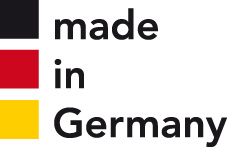
|
|
|||||||||||||||||||||||||||||||||||||||||||||||||||||||||||||||||||||||||||||||||||||||||||||
|
Technical data Dependence of the reaction velocity on the type of substanceArticle no: P1149100

Principle According to the fundamental laws of chemistry, a chemical reaction starts spontaneous when the reaction is exothermic, that means energy (usually in the form of heat) is released to the environment. The reaction rate depends on the reaction temperature and the concentration of the starting materials (an increase in the reaction temperature or the concentration of the starting materials leads to an increase in the reaction rate). But this experiment demonstrates that for the same temperature same concentration and comparable reacting surface area of the starting materials, a difference in the reaction rate can be observed. For this purpose, magnesium or zinc is reacted with concentrated hydrochloric acid and the resulting amount of hydrogen (formed by the reaction) is examined). Although the reaction temperature, concentration of starting material and surface area of the starting materials are (almost) the same, the reaction of magnesium with hydrochloric acid proceeds significantly faster. Due to its position in the electrochemical series of elements, magnesium has a more negative potential than zinc . This is the reason why magnesium reacts faster with hydrochloric acid than zinc.
Learning objectives
Scope of delivery
|
|||||||||||||||||||||||||||||||||||||||||||||||||||||||||||||||||||||||||||||||||||||||||||||
|
|
Robert-Bosch-Breite 10 – 37079 Göttingen – Germany
www.phywe.com

